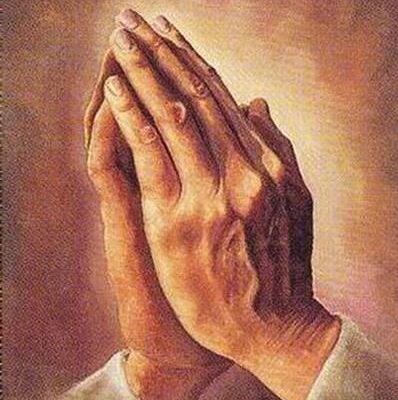Setting aside the “pride” that refers to a group of lions, the word has two radically different meanings. One is an honor, the other a deadly sin. Disjunctive as these two meaning are, they are often confused with each other. Therefore, it is useful to clarify what they mean and how they are different.
In the first sense, pride is an honor bestowed upon a person or group of persons for doing something that is meritorious. Lou Gehrig is properly called the “Pride of the Yankees,” and the distinguished legacy of the Boston Celtics is justifiably referred to as “Celtic Pride.” We can be proud of our spouse, our children, and our country. In this case, pride is our acknowledgement of worthy accomplishments.
We should be cautious about feeling proud of our own accomplishments since pride in this instance can easily bruise our humility. When we are congratulated for something we did, it is best to respond with a simple thank you. It is wise to deflect praise so as to share it with others: “I could not have done it without the team.”
The second sense of the word pride is not only ranked among the seven deadly sins, but it is the most deadly. It is, as G. K. Chesterton has remarked, “the enduring bungle of mankind.” For John Ruskin, “In general, pride is at the bottom of all great mistakes.” It is the disposition that feeds the other deadly sins. It is the most difficult to diagnose as well as the most difficult to erase. Pride is putting the ego first. The elevation of the ego to a state of primacy, is, of course, foolish. More importantly, however, it is malicious. This is because it dishonors the value of everything else.
Gayle Sayers, perhaps the greatest broken-field runner in the history of the NFL, titled his memoir, I Am Third. He placed God first, his neighbor second, and himself third. This order defeats pride while honoring humility. It is a humility that imitates the life of Christ. In the words of Blaise Pascal, “Jesus is the God whom we can approach without pride and before whom we can humble ourselves without despair.”
In his book, Life of Christ, Bishop Fulton Sheen states that, “Inasmuch as the most general sin of mankind is pride or the exaltation of the ego, it was fitting that in atoning for that pride, Christ should practice obedience.” Indeed, He practiced obedience unto death. It was obedience to the Father, but at the same time it was the supreme act of humility. Christ teaches us to be humble as an antidote to pride. In humility we find our proper place in the grand scheme of things. With pride, we are out of joint. As St. Augustine informs us, “It was pride that changed angels into devils; it is humility that makes men as angels.”
Yet, divergent as these two meanings of pride are, they are often confused. In a TV drama, a young woman says to her friend, “I am so proud of you for having that abortion.” But is abortion something to be proud of? The LBTQ+ group has its own special “Pride Week.” Yet, it must be asked, what has this group, which is identified by a common sexual deviancy, accomplished to warrant this grand accolade? It is a title conferred upon itself, an act of unmerited pride.
Rome hosted its first Gay Pride event in the year 2000. Here is Pope John II’s response:
In the name of the Church of Rome, I can only express my deep sadness at the affront to the Great Jubilee of the Year 2000 and the offense to the Christian values of a city that is so dear to the hearts of Catholics throughout the world. The Church cannot be silent about the truth, because she would fail in her fidelity to God the Creator and would not help to distinguish good from evil.
Although we attach great importance to pride, in reality we have adopted an attitude that is extremely vulnerable. Just as our ego can easily be bruised, our pride can just as easily be wounded. Vanity is a species of pride that comes to the defense of pride. Yet vanity, being vain, can offer but a weak defense. Pride is grounded in shifting sands. Reality is what it deplores. Pride, therefore, protects itself against just criticism and avoids challenges. The person who is ruled by pride knows, however, deep down, that something is amiss. Pride is also the enemy of peace of mind.
Pride gives us an artificial bearing, whereas humility makes us real. It is an unattractive posture and fails to win friends. Humility, which welcomes friendship, is attuned to community. To be proud as a peacock belongs exclusively to the peacock. One may have his pride, but it is not something that he can share with others. Indeed, no one else wants it.
The great paradox of pride is that although it appears to be a property of the self, in actuality, it does not belong to the self at all. Pride is an illusion, despite it being treasured. Mother Angelica has instructed us that, “Pride in our hearts makes us resentful and keeps our memory in a constant whirlwind of passion and self-pity.” Humility is liberating. Bad pride belongs to the ego; good pride belongs to the heart.
Photo by Vladislav Babienko on Unsplash


